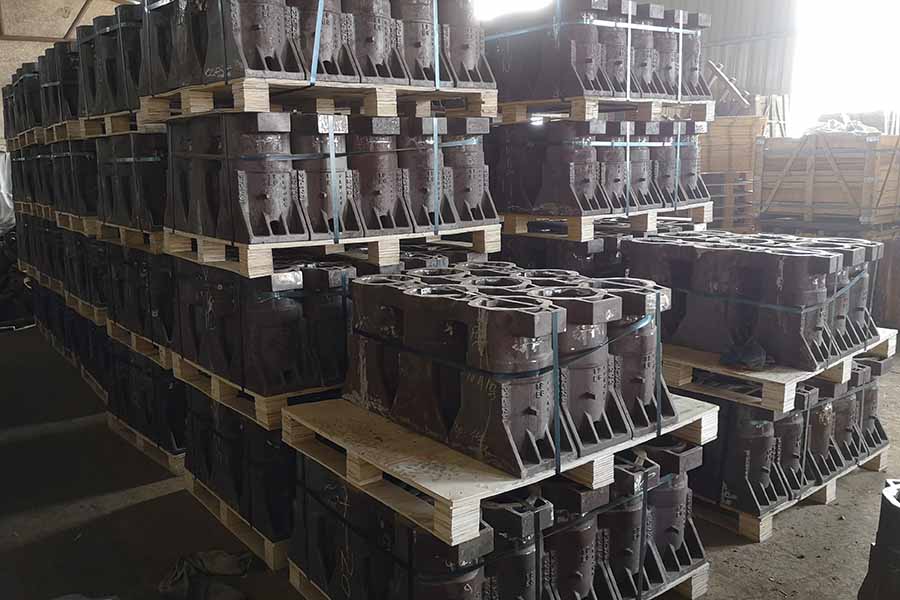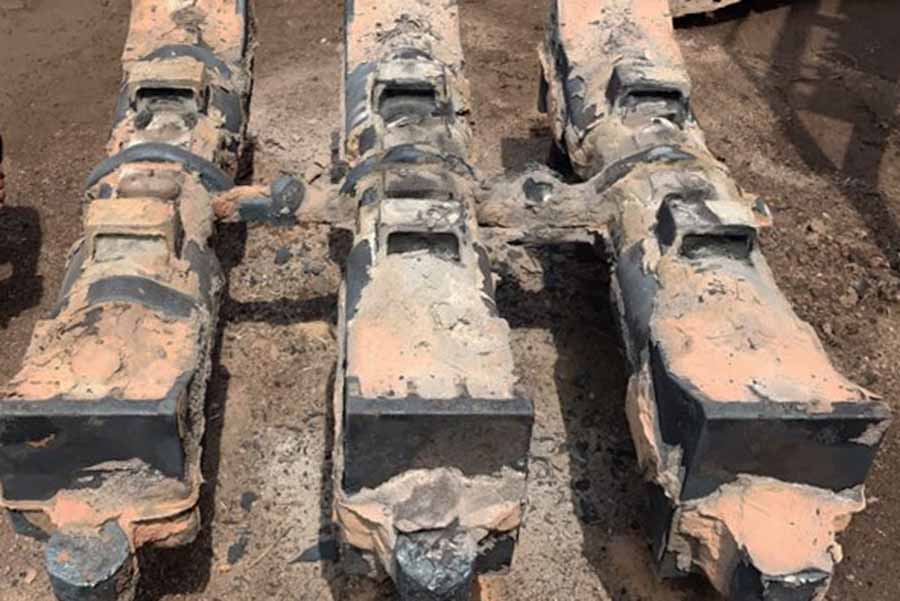Among a wide variety of casting alloys, wear-resistant cast steel is a very widely used alloy steel. Wear-resistant cast steel mainly improves the wear resistance of steel castings by adding different content of alloying elements, such as manganese, chromium, carbon, etc., to the alloy. At the same time, the wear resistance of wear-resistant steel castings also depends on the heat treatment method used by the foundry and the structure of the casting.
According to different wear characteristics, the wear of steel castings can be divided into abrasive wear, adhesive wear, fatigue wear, corrosion wear and fretting wear. Wear-resistant steel castings are mainly used in industrial fields with complex working conditions and high mechanical performance requirements, such as mining, metallurgy, construction, power, petrochemical, water conservancy, agriculture and transportation industries. Wear-resistant steel castings are mostly used in abrasion conditions with a certain impact load, such as grinding equipment, excavators, crushers, tractors, etc.
In the foundry industry, the commonly used types of wear-resistant cast steel include wear-resistant manganese steel, wear-resistant chromium steel, wear-resistant low-alloy cast steel and wear-resistant carbon steel. At RMC Foundry, the wear-resistant cast steel could be cast by several casting processes including green sand casting, resin coated sand casting, no-bake mold casting, investment casting, lost foam casting and vacuum casting.
1) Wear-Resistant Manganese Steel
According to the different manganese element content, the wear-resistant manganese steel for casting is mainly divided into low-manganese wear-resistant cast steel, medium manganese wear-resistant cast steel and high manganese wear-resistant cast steel. Wear-resistant manganese steel has high toughness and is not easy to break during use. At the same time, it has excellent work hardening properties, so wear-resistant manganese steel is suitable for abrasive wear conditions.
Commonly used grades of wear-resistant manganese steel for casting are: M13 (Hadfield Steel), Mn5, Mn6, Mn7, Mn8, Mn17 ZG120Mn7Mo1, ZG120Mn13, ZG120Mn13Cr2, J9119, J91149, J91139, J91340, etc.
2) Wear-resistant Chrome Steel
The wear-resistant chromium steel for casting adjusts the hardness and wear resistance of the cast steel by adding an appropriate amount of chromium to the alloy steel. Increasing the content of chromium in medium carbon steel can improve the hardenability of cast steel and also improve the toughness of cast steel. Adding a small amount of molybdenum can further improve the hardenability of cast steel. The heat treatment method of wear-resistant chromium steel is generally high temperature quenching + low temperature tempering. It should be noted that as the carbon content of wear-resistant chromium steel increases at any time, the hardness of steel castings will increase, but its toughness will decrease.
Commonly used grades of wear-resistant chromium steel for casting are: ZG30CrMo, ZG35CrMo, ZG40Cr, ZG40CrMo, ZG42CrMo, ZG50CrMo, etc.
3) Wear-Resistant Low-alloy Cast Steel
Low-alloy steel refers to alloy steel with an alloying element content of less than 5%. Since the hardness and toughness of low-alloy cast steel can be adjusted in a relatively large range, wear-resistant low-alloy cast steel is used more and more widely. When choosing the casting metal and heat treatment method, it is necessary to comprehensively consider the strength, impact energy and wear resistance of low-alloy wear-resistant cast steel to achieve the most ideal effect. Common alloying elements in low-alloy wear-resistant cast steel include molybdenum, chromium, manganese, nickel, and silicon.
Commonly used grades of wear-resistant low-alloy steel for casting are: ZG30Mn2Si, ZG30Mn2SiCr, ZG30CrMnSiMo, ZG30CrNiMo, ZG40CrNiMo, etc.
4) Wear-Resistant Carbon Steel
The wear resistance of carbon steel is mainly obtained by surface hardening of steel castings. When the carbon content is greater than 0.35%, surface induction hardening is usually used on the surface of the steel casting. When the carbon content is less than 0.35%, the carbon steel castings can be carburized, nitrided or carbonitrided to improve its wear resistance.


Post time: Feb-02-2021

